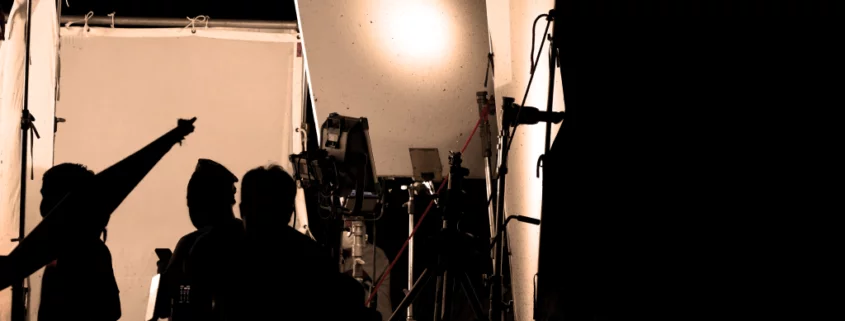How to Get Started as a Television Series Producer
What exactly is the role of a Series Producer?
The overall duty for producing shows falls on the shoulders of the series producers, sometimes known as SPs. They start working on the project during the pre-production phase and continue doing so right up until the series is finished and ready for transmission. They are responsible for ensuring that the overall editorial and narrative structures, as well as the artistic look-and-feel of the series, are attained and maintained. This is a senior editorial function, and it is especially crucial when multiple filmmakers are making individual episodes.
A Typical Workday for a Television Series Producer
The Series Producer is typically one of the first individuals to become involved in a new production. They are responsible for utilising their contacts and previous production expertise to assemble the most qualified production crew possible. They frequently get in touch with the Directors, Producers, and Assistant Producers they’ve previously collaborated with on other works. The type of production determines the size of the team a Series Producer works with, as well as the areas of expertise each member brings to the table. They might require a Casting Producer to manage a huge casting crew for a talent show, an Archive Producer for a documentary about the past, or a team with prior experience in live programming.
The Series Producers are in charge of managing the editorial team and making all of the content decisions. These decisions include determining which on-screen contributors, such as actors, presenters, or specialists, should be proposed to the channel’s commissioners (who usually have the final say). They are responsible for all research, the editing of all scripts, and the supervision of filming in the studio or on location, both in the United Kingdom and elsewhere. They are responsible for cultivating positive working conditions and maintaining open lines of communication with all parties involved in order to ensure that the production runs efficiently. The producers of a television series are ultimately responsible, from a legal standpoint, for the health and safety of their crew as well as anyone else who is involved in the production of their series.
SPs are in charge of driving the most important creative aspects of a programme, such as determining the shooting styles to be used and making sure that the studio sets not only look the part but can also provide the material. During post-production, they are responsible for directing the progression of the edit, supervising the selection of music, graphics, and title sequences, and ensuring that the final programmes are polished and delivered on time.
This position is frequently referred to as the “Series Editor” on programmes with a daily, consumer affairs, or magazine-style format. Due to the fact that they need less direction and assistance from the Executive Producer, very experienced Series Producers are sometimes sometimes referred to as “Showrunners.” This is because they run the show. Unless they are working for a very long-term production, series producers almost typically operate on a freelance basis, and they frequently specialise in a particular genre.
Skills
- Possess the experience and the skills necessary to maintain the editorial, creative, and entertaining values throughout the course of a television series. Think creatively while maintaining an open mind. possessing great editorial judgement together with the ability to think laterally and creatively.
- Possess the expertise necessary to counsel and direct numerous Directors who are assigned to the series, including the ability to juggle various shoots, multiple edits, and different teams at multiple locations, sometimes while you yourself are working on location.
- You should have excellent communication skills, be able to explain your creative and editorial vision and goals, liaise confidently and professionally with TV commissioners, and keep the Executive Producer up-to-date while simultaneously managing their expectations.
- A complete understanding of the technical aspects of television production is required, beginning with pre-production and continuing all the way through post-production.
- Gain an understanding of the degree to which the various stages of production and post-production play a role in contributing to the desired end-result in terms of the product that has been finished.
- A complete understanding of production budgets and how they are managed is required.
- Having a comprehensive understanding of the contractual, legal, employment, regulatory, and compliance concerns that are relevant to TV production management is essential.
- Have a huge contact book in order to be able to attract the best production crew for the task, and have excellent established ties with TV commissioners, agencies, and experts.
- Be able to problem solve. Always have a plan “B” in place, be able to prioritise and make rapid and effective judgments, be willing to take risks while keeping an open mind, listen to others, and be proactive.
How to Get Started as a Television Series Producer
It is expected that producers of longer series will have several years of experience as producers of shorter series or one-off programmes. Before this, they may have previously established themselves as effective Production Managers or Line Producers. Aspiring SPs will be required to provide a robust portfolio in addition to having First Aid and Health and Safety training under their belts. A well-rounded education typically includes subjects such as Humanities or Media Studies. Even though it is not required, most series producers have at least a bachelor’s degree in their field. Starting off as a Runner, which is an entry-level function, could be an excellent way to obtain experience early on in your career. This would enable you to get a solid grasp on the production process as a whole and provide opportunities for advancement in a number of different areas.
Newest Positions Available for Series Producers
Developing your Skills
Experience is essential for senior roles such as Series Producer; the greater the breadth of your experience, the more you will be able to demonstrate that you have the necessary skills. One further thing to think about is whether or not you want to specialise in the production and development of that expertise. This could be accomplished by looking for projects that interest you and making it your mission to disseminate tales that pique your curiosity. Alternately, if you find the tasks of managing people to be enjoyable, then you should participate more in that area of the process. You will play an important role in defining the team, so play to your advantages and make use of the individuals you know to find people who can fill the open positions.
Compensation and Time Spent Working
The price range for a Series Producer can be quite unpredictable due to factors like as the scope and prominence of the production, as well as the individual’s level of prior experience and reputation in the industry. An experienced producer can make between $40,000 and $55,000 a year, and series producers can make up to $80,000 a year. The majority of roles are independent contractor or project-based professions.



